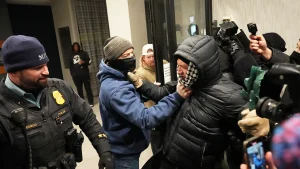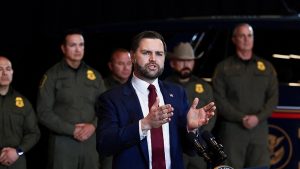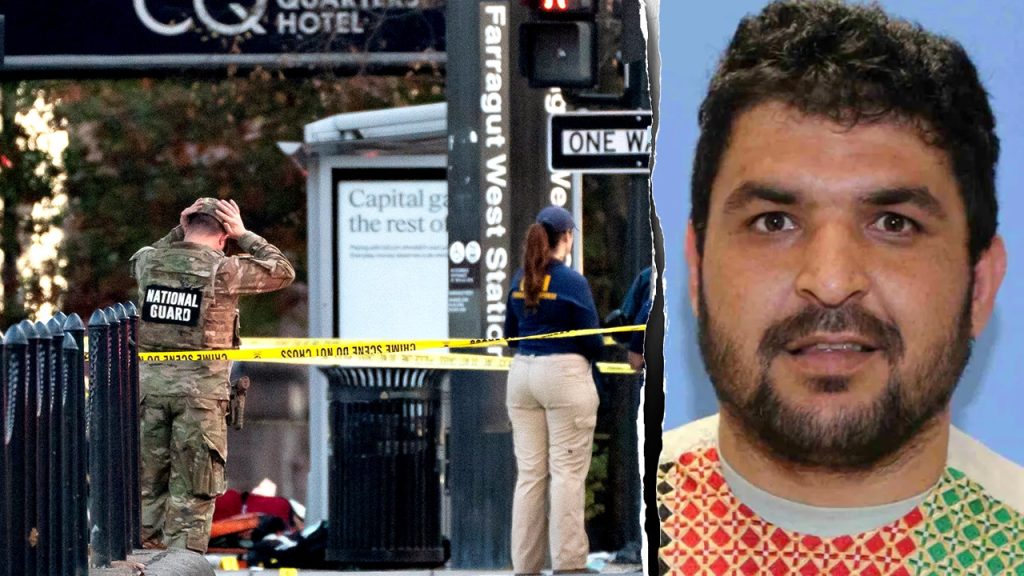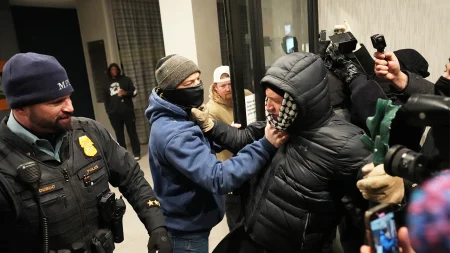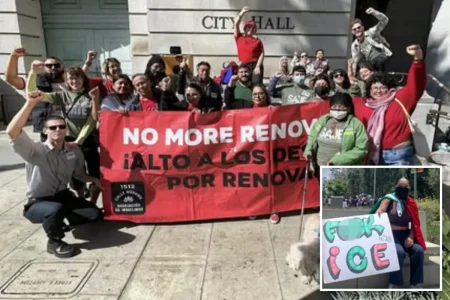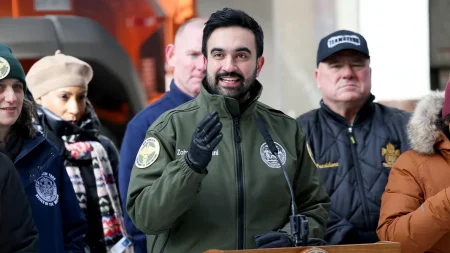From Elite CIA Operative to White House Shooting Suspect: The Rahmanullah Lakanwal Story
In a shocking turn of events that has raised serious questions about America’s vetting procedures, Rahmanullah Lakanwal, a 29-year-old Afghan national, stands accused of shooting two National Guard members just blocks away from the White House on Thanksgiving Eve. What makes this case particularly striking is Lakanwal’s background—he wasn’t just any Afghan refugee, but a former member of NDS-03, an elite CIA-operated counterterrorism unit in Afghanistan. These “Zero Units,” as they were known colloquially, carried out some of the most dangerous missions against the Taliban and Al Qaeda. Lakanwal’s unit specifically operated in Afghanistan’s volatile southern region, working out of a compound formerly owned by Taliban leader Mullah Omar—a location American forces called “Camp Gecko.” These operatives were considered highly trusted allies who underwent extensive CIA vetting before their service.
Lakanwal’s journey to America began during the chaotic U.S. withdrawal from Afghanistan in 2021. As the Taliban rapidly took control of the country, he entered the United States legally under humanitarian parole as part of the Biden administration’s Operation Allies Welcome—a program designed specifically to resettle vulnerable Afghans, particularly those who had assisted American forces. According to Afghan Evac, a non-profit organization that works with Special Immigrant Visa holders, Lakanwal subsequently had his asylum application approved in April 2023. This path from trusted U.S. ally to suspected shooter has sparked intense debate about immigration policies and vetting procedures for those entering the country under emergency circumstances.
The shooting itself occurred on Wednesday afternoon around 2:15 p.m. near the Farragut West Metro station in Washington, D.C. U.S. Attorney Jeanine Pirro described the attack as a deliberate “ambush” in which Lakanwal allegedly “targeted” National Guard members Sarah Beckstrom, 20, and Andrew Wolfe, 24. Both victims underwent surgery and remained in critical condition following the attack. The suspect was shot and subdued by a responding Guardsman and placed under “heavy guard” while hospitalized. The proximity of the shooting to the White House and its timing on the eve of a major national holiday added to the alarm surrounding the incident, though authorities have not yet revealed information about potential motives.
In the wake of the shooting, the vetting process for Afghan refugees has come under intense scrutiny from officials. FBI Director Kash Patel criticized the Biden administration, claiming they allowed “thousands of people into this country without doing a single piece of background checking or vetting.” U.S. Attorney Pirro echoed these sentiments, suggesting the incident demonstrates what happens “when people are allowed in who are not properly vetted.” However, a senior U.S. official told Fox News that Lakanwal would have undergone multiple levels of security checks—first when joining the CIA-backed unit around 2011 (when he was likely only 15 years old), again during the Operation Allies Welcome program in 2021, and during continuous annual vetting since his arrival in America. According to this official, “nothing came up” during these checks and “he was clean on all checks.”
Adding complexity to Lakanwal’s background is the information about his age when he began working with American forces. The senior U.S. official noted that he likely started working with the CIA when he was just 15 years old—not uncommon in Afghanistan, where birth certificates were often forged to make applicants appear 18 or older when applying for work with U.S. forces. The official explained that few official birth records exist in Afghanistan, making it difficult to verify anyone’s exact age. This early recruitment into dangerous counterterrorism work highlights the complicated relationship between American forces and their local allies during the two-decade war in Afghanistan, where young teenagers sometimes found themselves involved in high-stakes security operations.
The Lakanwal case has become emblematic of broader concerns about national security and immigration policy, particularly regarding the rapid evacuation and resettlement of Afghan allies following the U.S. withdrawal. This incident follows other security concerns, including a foiled terror plot in Oklahoma last year that involved an Afghan evacuee—an incident that reportedly prompted increased vigilance in vetting procedures. The shooting raises difficult questions about balancing America’s moral obligation to protect those who risked their lives to assist U.S. forces against the imperative to ensure public safety. As investigators continue to piece together what led a former elite counterterrorism operative to allegedly open fire near the White House, the case underscores the complex challenges at the intersection of foreign policy, immigration, and national security in a post-Afghanistan War America.
